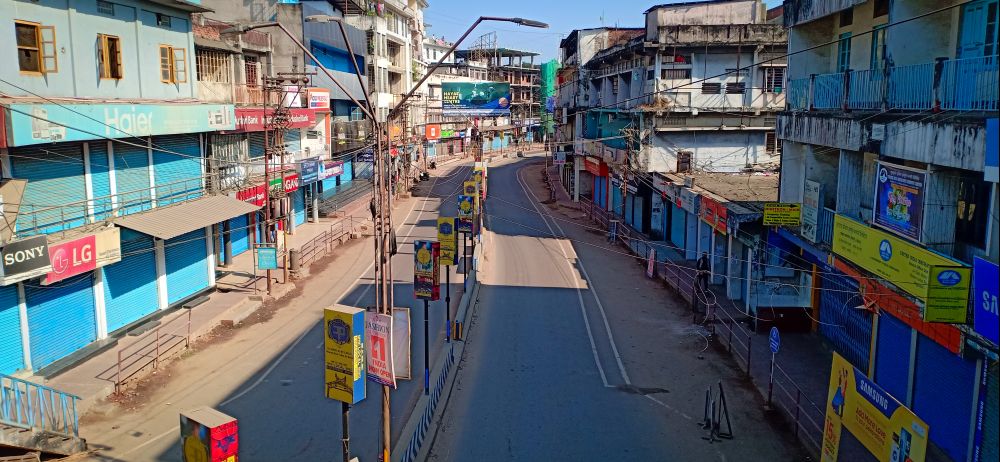A cloud of uncertainty looms over the eastern regions of the state as the Eastern Nagaland People’s Organisation (ENPO) enforces an ‘indefinite shutdown.’ This move, announced mere hours before the commencement of polling, has cast a shadow of apprehension over the electoral process, raising concerns about voter turnout, security, and the democratic rights of citizens.
The Eastern Nagaland region, comprising the districts of Mon, Tuensang, Longleng, and Kiphire, has historically grappled with issues of underdevelopment, political marginalization, and ethnic tensions. The ENPO, an apex body representing various Naga tribes in these areas, has long been advocating for administrative and political autonomy, citing grievances related to governance and representation.
The decision to impose an ‘indefinite shutdown’ comes as a culmination of simmering discontent and frustration within the Eastern Nagaland communities, exacerbated by perceived neglect and indifference from the state and central governments. The ENPO’s call for a shutdown aims to draw attention to these grievances and press for concrete action on long-standing demands related to political recognition and developmental initiatives.
However, the timing of the shutdown, just hours before polling, has sparked a flurry of concerns among electoral authorities, political parties, and citizens alike. With transportation networks disrupted, businesses shuttered, and public movement restricted, the shutdown threatens to impede the electoral process and undermine the democratic rights of voters in the affected areas.
One of the primary apprehensions stemming from the shutdown is its potential impact on voter turnout. With transportation services suspended and public amenities inaccessible, voters may face logistical challenges in reaching polling stations, particularly in remote and rural areas. This could result in disenfranchisement and a dampened democratic spirit among the electorate.
Moreover, the shutdown raises serious security concerns, given the volatile nature of the region and the potential for unrest and agitation amidst the backdrop of electoral activities. The enforcement of a shutdown could create fertile ground for civil unrest, protests, or even acts of sabotage, posing significant challenges to law enforcement agencies tasked with ensuring peace and order during the polling process.
Political parties, too, find themselves in a precarious position, navigating the complexities of campaigning and mobilization efforts in an environment marred by uncertainty and unrest. The sudden imposition of a shutdown disrupts carefully laid-out strategies and further complicates efforts to engage with voters and convey electoral messages effectively.
In response to the ENPO’s shutdown call, electoral authorities and law enforcement agencies are working tirelessly to mitigate the impact and ensure the smooth conduct of polling in the affected areas. Contingency plans are being activated to facilitate voter outreach, provide security cover to polling stations, and address any emergent challenges that may arise during the electoral process.
The Election Commission of India (ECI), in collaboration with state authorities, has reiterated its commitment to upholding the integrity of the electoral process and safeguarding the democratic rights of citizens in Eastern Nagaland. Efforts are underway to provide alternative arrangements for voters facing difficulties due to the shutdown, including the deployment of additional transportation services and the extension of polling hours where necessary.
As the people of Eastern Nagaland grapple with the ramifications of the ENPO’s shutdown, the fundamental principles of democracy hang in the balance. The right to vote, a cornerstone of democratic governance, must be upheld and protected at all costs, even in the face of challenges and adversities.
In the final analysis, the imposition of an ‘indefinite shutdown’ by the ENPO mere hours before polling in Eastern Nagaland underscores the deep-seated grievances and aspirations of the region’s inhabitants. However, it also highlights the delicate balance between democratic expression and the exigencies of governance, reminding us of the collective responsibility to safeguard the democratic process and ensure the voices of all citizens are heard, irrespective of the circumstances.

